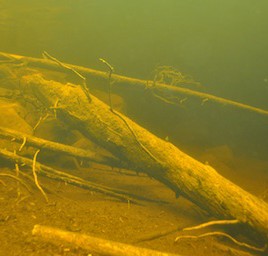New data from trees preserved in lakes in the Taiga of northern Quebec show that eastern Canada experienced much colder than usual summers following distant volcanic eruptions in the 13th century, and again in the 19th century. The so-called ‘Little Ice Age’ is well-documented in the historical and tree ring records worldwide, but the strength […]
Tag: climate change
Comment: Experts call for moratorium on new pipelines
In a Comment piece in Nature, Eight experts in environmental science, policy and risk call for a moratorium on building new oil pipelines in North America. Both Keystone XL pipeline (which would run from Alberta through the US Midwest) and Northern Gateway pipeline which would connect Alberta with a port on British Columbia’s coast “highlight […]
Climate change effects and human migration
Long-term changes in climate have a greater impact on human migration than sudden natural disasters, a new study shows. Authors tracked 7,185 households in Indonesia between 1993 and 2007, focusing on agricultural regions. They found that when average annual air temperatures exceeded 25 °C, households were more likely to migrate permanently for economic reasons. Natural […]
Can information and communications technology (ICT) help produce a greener Canada?
Imagine an app that helps monitor your water usage, or a “smart building” that tints its windows in response to sunlight in order to save on air conditioning costs. Such technologies exist, but putting them to work will require integration on a number of fronts: improving broadband access in all areas of the country; standardizing […]
Alberta’s Bow River: Climate change and human impacts | SMCC Backgrounder
In the days leading up to June 20, 2013, Alberta experienced extreme rainfall that led to flooding on the Bow River and its associated watershed. Total damage was estimated at $3 to 5 billion. While there is no way to prevent such floods, scientific research by climatologists, hydrologists and other experts can help us understand […]
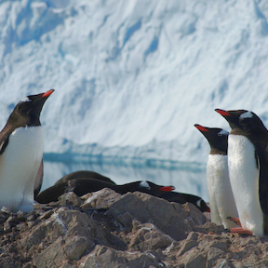
Which penguins beat the heat?
According to a new study, the Gentoo penguin is benefiting from climate change, while the chinstrap and Adélie penguins are not. Researchers used DNA analysis to assess the historic demographics and population structure of these species, and found that Gentoo penguins are climate change ‘winners’ and are expanding their range southward, while the two other […]
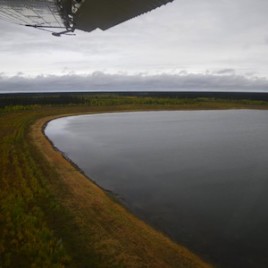
New Arctic permafrost won’t last
As Arctic lakes shrink, new permafrost develops around them, but according to a new study it’s not expected to last the century. Researchers looked at a retreating lake in Alaska and saw new permafrost had formed along the old lakebed in areas where willow trees had altered the soil’s moisture and heat content. The new […]
Is there a place for climate engineering?
While there is no substitute for lowering our emissions, some climate engineering approaches are more promising than others, according to a new analysis. Climate engineering refers to strategies that remove carbon dioxide from the atmosphere and/or reduce solar input, as opposed to preventing new emissions. Researchers from a variety of disciplines developed criteria to rank such […]
One in four major cities is water-stressed
The first global database of urban water sources and stress finds that one in four major cities use more than 40 per cent of the water available to them. This proportion is lower than previous estimates, in part because the new study accounts for the fact that many cities draw on distant watersheds, rather than […]
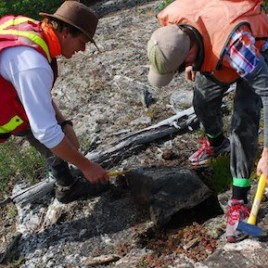
Ancient Canadian rocks shed light on first continents
A new analysis of some very old rocks from the Northwest Territories sheds light on how the very first continents formed. Rocks that make up the continental crust are less dense than those in oceanic crust, and today formed mainly in subduction zones, where oceanic crust and water get forced downward under overlapping tectonic plates. […]
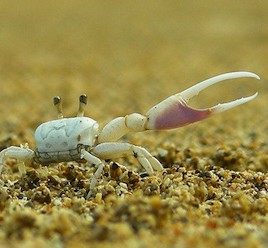
How baby fiddler crabs catch a wave
A new study shows how some species of fiddler crabs can compensate for changing temperatures when timing their courtship. Fiddler crabs sync up the hatching of their young with bimonthly higher tides in order to ensure they have the best chance of escaping predators. But at some times of year, cold temperatures can slow embryo […]
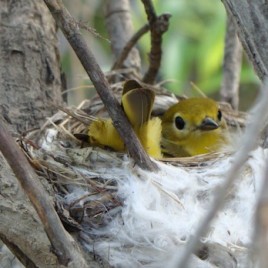
Warblers limited by winds during migration
A new study shows that survival and productivity of the yellow warbler depends most strongly the weather conditions during migration, rather that those in its breeding or wintering grounds. Researchers banded and monitored 380 of the tiny songbirds, which which breed in western Canada and overwinter in Mexico and Central America, over seven breeding seasons. […]
West Antarctica Ice Sheet is Collapsing
On May 12, 2014, two papers were released which indicated that the Thwaites glacier, a major component of the West Antarctic Ice Sheet, is already under collapse, possibly irreversibly. The first paper, accepted for publication in Geophysical Research Letters, was done by researchers from the University of California Irvine and NASA’s Jet Propulsion Laboratory, and was the subject […]
Why climate change is drying out Australia while Antarctica resists the warming trend
By developing a 1,000-year history of wind currents over the Southern Ocean, an Australian-led research has discovered the answers to two climate change-related mysteries. Firstly, why southern Australia is drying out, and secondly, why Antarctica isn’t warming as much as the rest of the planet. Their work shows that the winds encircling Antarctica have sped […]
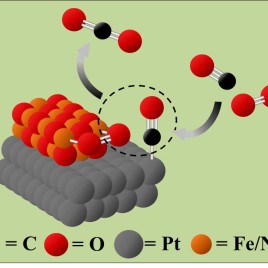
New nanoparticles provide superior pollution prevention
Removing toxic carbon monoxide (CO) from car exhaust and other pollution sources could soon be cheaper and more efficient, thanks to a new type of nanoparticle catalyst. Catalytic converters that turn CO into benign CO2 rely on expensive metals like platinum to speed up the chemical reaction. The new nanoparticles combine platinum with cheaper iron […]
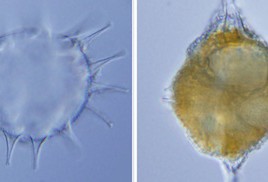
Million-year-old plankton comes back to life
Scientists have recovered a form of plankton thought to be extinct for a million years. It is the only surviving member of a plankton lineage common 50 million years ago. The heat-loving, single-celled organism Dapsilidinium pastielsii was thought to have disappeared from the fossil record because of colder ocean temperatures. However, a group of […]
